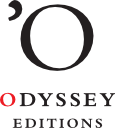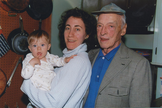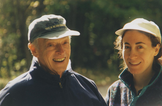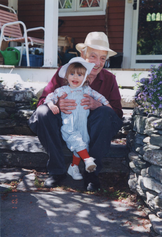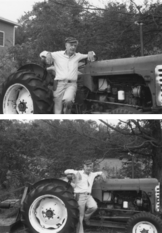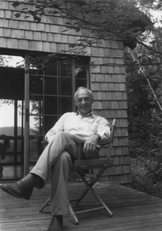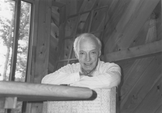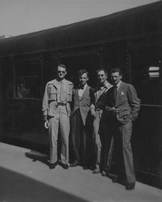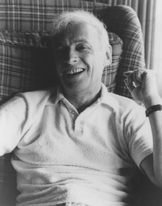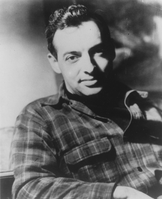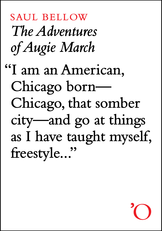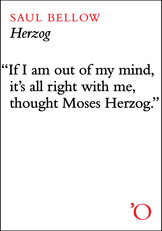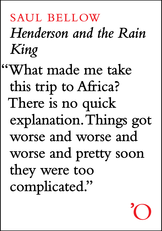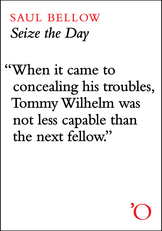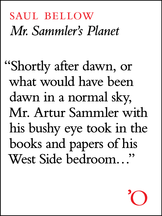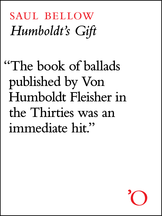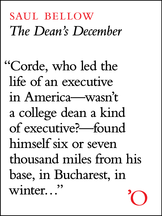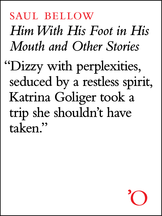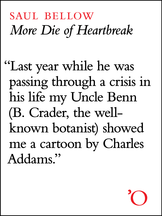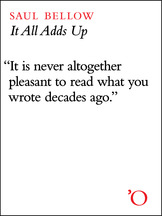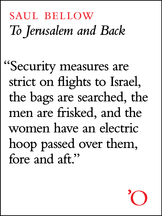Saul Bellow
A fiction writer, essayist, playwright, lecturer, and memoirist, Saul Bellow was born in Lachine, Quebec, in 1915, and was raised in Chicago. He received his Bachelor's degree from Northwestern University in 1937 and did graduate work at the University of Wisconsin before serving in the Marines during World War II. Later, during the 1967 Arab-Israeli conflict, Bellow served as a war correspondent for Newsday. Throughout his long and productive career, he contributed fiction to several magazines and quarterlies, including The New Yorker, Partisan Review, Playboy, and Esquire, as well as criticism to The New York Times Book Review, The New Republic, The New Leader, and others.
Universally recognized as one of the greatest authors of the twentieth century, Bellow has won more honors than almost any other American writer. Among these, he received the Pulitzer Prize for his novel Humboldt's Gift and the B’nai B’rith Jewish Heritage Award for “excellence in Jewish literature.” He was the first American to win the International Literary Prize, and remains the only novelist in history to have received three National Book awards, for The Adventures of Augie March, Herzog, and Mr. Sammler’s Planet. In 1976, Bellow was awarded the Nobel Prize in Literature “for the human understanding and subtle analysis of contemporary culture that are combined in his work.” Saul Bellow died in 2005 at age 89.
Books By Saul Bellow
The Adventures of Augie March
The great novel of the American dream, of “the universal eligibility to be noble,” Saul Bellow’s third book charts the picaresque journey of one schemer, chancer, romantic, and holy fool: Augie March. Awarded the National Book Award in 1953, The Adventures of Augie March remains one of the classics of American literature.
 |
Read more about The Adventures of Augie March:
Herzog
Moses E. Herzog, the protagonist of Saul Bellow’s Herzog, finds himself in a pickle. He may be handsome, witty and wise, but his wife has just taken off with his best friend, and he is without resources to face his troubles. What is an academic to do when his personal life turns to chaos?
 |
Henderson the Rain King
The most exuberant and funny of all Bellow’s novels, Henderson the Rain King remained the author’s personal favorite. Its outsized hero, Eugene Henderson, a mountain of a man, a millionaire, the father of many, remains adrift. Aggrieved, worn-out, all but defeated he longs to set things straight. Following the promptings of his unforgettable inner voice—“I want, I want, I want”—our hero finds himself in Africa.
 |
Seize the Day
Seize the day. Be in the present. Grasp the hour, the moment, the instant. This is the dubious advice given by outlandish Dr. Tamkin—part psychologist, part stockbroker—to poor Tommy Wilhelm. Unemployed, at the whim of his ex-wife and two children, and hurt by his proud and callous father, Wilhelm is disgusted with himself, yet forever hopeful that his suffering is purposeful. When he decides to entrust the last of his money to a mysterious commodities venture with Dr. Tamkin, he unwittingly sets in motion the most eventful day of his life. The journey that follows takes him across the length of New York City, from his hotel room at the Gloriana to the floor of the stock exchange, bringing him ever closer to "his heart's ultimate need."
 |
Mr. Sammler's Planet
Who is Mr. Sammler? A Jewish intellectual educated in Western philosophy, a one-eyed Holocaust survivor, the future author of the greatest biography ever written of H.G. Wells ... or merely the trusted confidant of countless eccentric New Yorkers, a "registrar of follies"? Through the chaotic streets of the Upper West Side old Artur Sammler paces, meditating on the human condition; attentive to everything and appalled by nothing; haunted by his past, present, and future. His world seems on the brink of apocalypse; both the recent moon landing and the death of his beloved benefactor have him furiously speculating on the end. With his inimitable tragicomic mastery Saul Bellow delves once again, and the reader with him, into a contemporary and chaotic universe in which the most profound reflections on the meaning of life mingle with the absurd, histrionic, endless minutiae of the every day.
 |
Humboldt's Gift
With his uncanny wit and perception, Saul Bellow tells the story of Charlie Citrine, a young man whose life is reaching a critical moment. Over several years, Charlie’s almost obsessive love of literature has led him into a deep friendship with the renowned poet Von Humboldt Fleisher, and when Humboldt dies, the young man’s life rapidly begins to unravel. A stalling career and an ugly divorce feed Charlie’s instability, and he engages in dubious friendships and an unwise liaison with the wrong woman. Amidst the chaos of a life in shambles, Charlie emerges by virtue of a legacy left by his departed companion, a legacy that offers him a glimpse of a new trajectory.
 |
The Dean’s December
After being widely portrayed as a virulent racist and a traitor to his city, Professor Albert Corde, dean of the faculty of Journalism, is forced to leave Chicago. Corde is ill-equipped to handle the outrage that faces him, both as the author of several articles on Chicago’s endemic corruption, and as an outspoken figure in the controversial trial of two black men charged with killing a white student. Travelling to Bucharest to visit his ailing mother-in-law, he is unable to escape the comparisons in his mind between the corrupt and dehumanizing aspects of the communist regime, and the abandoned streets of his home city. Meditating on the juxtaposition between two distant worlds, and obsessing over events that begin to unfold both in Chicago and Bucharest, he begins to concede defeat.
 |
Him With His Foot in His Mouth and Other Stories
Five of Saul Bellow’s most moving, richly textured, and exquisitely plotted short stories make up this volume, each providing a history of personality and self-awakening. The title story, “Him with His Foot in His Mouth,” follows a musicologist narrator who for years has scattered wounding witticisms “from the depths of my nature, that hoard of strange formulations.” As the story unfolds he tries to discover what led him into a “deep legal-financial hole,” while he awaits extradition from a refuge in British Columbia. “What Kind of Day Did You Have?” follows a divorced suburban woman and her lovers—would-be and actual—through a frantic day in their lives. Their needs and passions, as well as their comic conflicts, are matters of life and death.
 |
More Die of Heartbreak
In More Die of Heartbreak, our erratic narrator explains to his audience that he must abandon Paris for the Midwest. Of course, Kenneth merely wants to be closer to his beloved uncle, the world-famous botanist Benn Crader, to receive the older man’s worldly wisdom. The mercurial Benn, however, struggles to put down roots himself, constantly departing for the forests of India, the mountains of China, the jungles of Brazil, or even the Antarctic. Why does he travel so much? Submerging himself in botanical studies seem insufficient, and he hunts relentlessly for more carnal satisfaction. More Die of Heartbreak has all the humor of a French farce, and all the brooding darkness of a Hitchcock film. From this tragicomedy Bellow unravels a brilliant and sinister examination of contemporary sexuality, asking why even the most noble pursuits often end in mundane disillusionment.
 |
It All Adds Up
In this collection of more than thirty essays, published in The New York Times, Esquire and The New Republic, the vast range of Saul Bellow’s nonfiction is made abundantly clear. In Bellow’s capable hands, a single essay can range fluidly across topics as various as the talents of President Roosevelt, the economic narrative of Jay Gatsby, and childhood adventures in Chicago. In this rich mix of literary, political, and personal musings, Bellow is able to explore subjects as enormous as the writer’s search for truth, and as minute as the discomforts of a French doctors’ office. Traveling from Washington to Spain to the Sinai Peninsula, and profiling friends and characters such as John Cheever and John Berryman, Bellow is keenly focused and perceptive. These pages, spanning a lifetime of thought and debate, present provocative arguments and erudite literary criticism, all with the wry humor of a great storyteller.
 |
To Jerusalem and Back
In 1975, Saul Bellow traveled through Israel, turning his keen powers of observation upon the country he did not know. This book is a record of his stay—his personal experiences and fleeting impressions—and a reflection upon what he ultimately learned about the hallowed land. In Bellow’s signature style, this personal account crackles with wit and controversy on America's relationship with this embattled country, and in a series of vignettes, Bellow captures the opinions, passions, and dreams of Israelis. The varying viewpoints of those he encounters and interviews offer a revealing look at the history and challenges of Israel, and Bellow's passionate storytelling draws listeners in to share in his experience, and dwell upon the Jewish experience in the twentieth century.
 |
